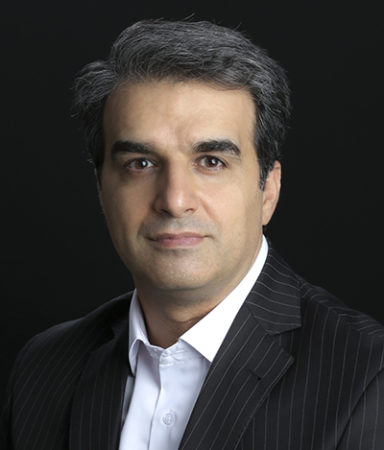It’s estimated that one in every 200 to 400 Canadians carries a mutation in either the BRCA1 or BRCA2 genes, putting them at increased risk for breast, ovarian and prostate cancers. Much is still unknown about the cause of most cancers, but for ovarian and breast cancers a BRCA mutation can increase a woman’s lifetime risk of developing the disease up to 40 and 80 per cent, respectively. Dr. Mohammad R. Akbari’s research is focused on studying genetics to prevent hereditary cancer from developing, diagnosing it early and treating it more effectively in patients who carry these mutations.
The technology for identifying BRCA1 and BRCA2 mutation-carriers has improved dramatically since their discovery in the mid 1990s, however we have not yet reached our potential in reducing cancer mortality among individuals who have a genetically higher risk for developing cancer. Dr. Akbari believes one of the best ways to use this information to improve cancer prevention is to implement a universal population-based genetic testing model. Last year, Dr. Akbari and his team launched The Screen Projectto further study the benefits of population-based genetic testing. The initiative provides BRCA screening at an accessible price to all Canadians, followed by genetic counselling on preventative options for those identified as having a genetic mutation. By identifying individuals at high risk of hereditary cancer, patients have increased access to screening to detect and treat their cancer at a smaller, more treatable stage. With this knowledge, patients and their healthcare providers can also have informed discussions about prophylactic treatments such as mastectomy and oophorectomy to reduce their risk of cancer completely – preventing cancer before it starts.
In addition to his current work on BRCA gene mutations, Dr. Akbari identified a new gene called RECQL that’s strongly linked to the onset of breast cancer in Polish and French-Canadian women. The discovery of this gene was another important step in identifying all of the relevant genes associated with hereditary cancers. In the future, Dr. Akbari hopes that knowing a patient’s mutation status at the time of cancer diagnosis will allow clinicians to offer more targeted treatments to decrease cancer-related mortality. The resulting reduction in cancer incidence, morbidity and mortality would additionally reduce costs within our resource-strained healthcare system. Knowledge about their own mutation status also allows patients to make healthcare decisions that decrease their cancer risk, enabling them to live longer and healthier lives.
PhD, Molecular Human Genetics, University of Toronto, 2010
M.D., Tehran University of Medical Sciences, Iran, 2001
- Dean’s Emerging Leader Award, University of Toronto Faculty of Medicine (2019)
- Salary Award in Cancer Prevention from Canadian Cancer Society Research Institute (CCSRI) (2014)
- Ontario Graduate Scholarship (2009)
- Union of International Cancer Control (UICC) International Cancer Technology Transfer Fellowship (2005)
- Bronze Medal, 25th International Chemistry Olympiad (Italy) (1993)
- Gold Medal, National Chemistry Olympiad (1993)
- Cancer
